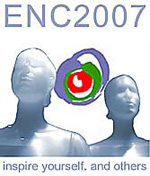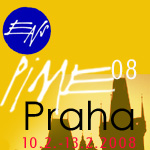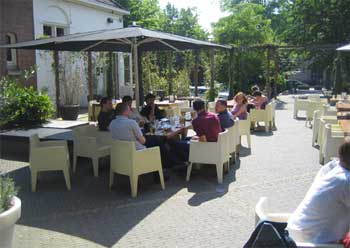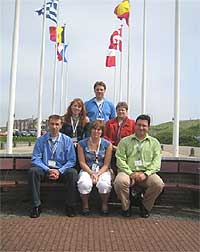 |
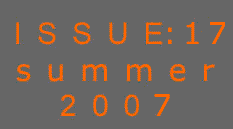 |
Issue No.17 Summer
|
|
ENS News |
|
ENS Events |
|
Member Societies & Corporate Members |
|
The Assisi Symposium on Nuclear Conversion and Development NUCLEONICA: A nuclear science portal Unusual Concepts of Nuclear Power Reactors Tractebel Engineering at the ICAPP congress Periodic Safety Review NPP Borssele reduced TCDF by a factor of 4 The Bulgarian Nuclear Society reports on Kozloduy NPP |
YGN Report |
|
First Announcement of IYNC 2008 Excursion of Czech Young Generation to the manufacturing facilities of ŠKODA JS A glimpse of the future as young
European nuclear professionals focus on nuclear agenda |
|
ENS World News |
ENS Members |
| Links to ENS Member
Societies Links to ENS Corporate Members Editorial staff ______________________ |
| _____________________ |
| _____________________ |
| Pime
2008 10 - 14 February 2008 in Prague |
| _____________________ |
|
| |
|
|
The young nuclear professionals then boarded a bus to Petten, to visit NRG’s facilities. The participants could visit either the High Flux Reactor (HFR) and the European Commission’s Joint Research Centre (JRC) Hydrogen Laboratories, or the Hot Cell laboratories and the ECN’s Renewable Energy Test Centre. The Dutch television channel NOS followed the group throughout the visit of the HFR and interviewed three representatives of EYGF - from the Netherlands, Spain and Finland respectively. The HFR, which is owned by the JRC and run by NRG-staff, is used for the research of materials used for fission and |
fusion, and also for producing isotopes for medical applications (www.nrg-nl.com). The programme was then broadcast during prime time hours.
The “fusion road show” was also “performed”
during EYGF. This show aims to explain the fundamental principle
of fusion in a clear and understandable way. It is based on the
CD Fusion - Power for Future Generations, produced by the European
Fusion Development Agreement (EFDA), which is available at:
www.efda.org/multimedia/cdroms.htm
EYGF was a great success and contributed to enhancing the profile of the nuclear community.
The programme and the presentations during the forum are available at: http://www.eyfg.org
| |
